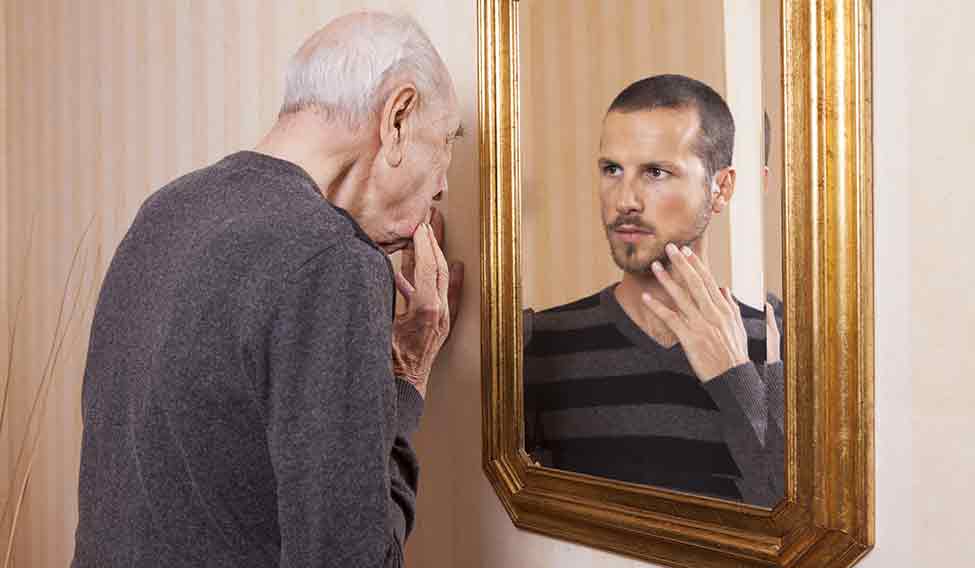Imagine a world where people live to celebrate their 500th birthday; where sprightly, smooth-skinned men and women with the agility and metabolism of 30-year-olds roam the planet, popping pills that prevent the curse of ageing. It may sound like a fantasy (a rather gruesome one at that) but for longevity scientist Dr Alex Zhavoronkov, it is a fully realisable scenario of the not too distant future.
The biotechnology scientist and his team are working on a range of drugs through his US-based company Insilico Medicine that, he claims, have powers of age prevention and even, in some instances, rejuvenation.
“Ageing is the most pressing problem facing mankind,” says Zhavoronkov, who holds a PhD in physics from the Moscow State University and heads the think-tank, the Biogerontology Research Foundation based in Oxford (the Latvian speaks five languages and considers himself a citizen of the world). Finding the optimal combinations of drugs that will eliminate old age are his life’s work—but given that he reasonably expects to live to 150 years (a prediction he considers conservative), there is plenty of time for that eureka moment.
If the idea you might live that long sounds absurd, then consider that we already enjoy a quality of life that was not possible 100 years ago. Over the past 100 years, life expectancy at birth has increased by almost three years per decade. A baby girl born today is now expected to live to an average age of 82.8 years and a boy to 78.8 years, according to the Office for National Statistics.
Astonishingly, Zhavoronkov believes we may not have to wait long before his age-eliminating pills are in our wrinkling hands. He has partnered with US supplement company The Life Extension Foundation, which, if all goes as planned, will launch a range of products called geroprotectors, compounds that may slow down ageing or even repair some of the age-associated processes, early next year. Geroprotectors are likely to be more expensive than multivitamins, but only slightly, Zhavoronkov says.
“If you’re thinking about diet and exercise, those are marginal steps,” he tells me. “If you want to think big, think about how to live to 500! And what do you need to do to reach that? Those are the questions we ask. Not just being a little bit healthier than our parents, and reducing frailty. That’s not the goal. The goal is to make a big leap.”
Far-fetched as his plans might sound, Zhavoronkov is just one of a wave of scientists intent on discovering the elixir of youth. In 2013, Google established Calico, an independent research and development biotech company aimed at combating ageing. A year later, radiologist and former venture capitalist Joon Yun launched the Palo Alto Longevity Prize, promising $1 million to the first team of scientists to solve ageing—currently 15 groups have signed up.
Meanwhile, researchers at UCL and Harvard have suggested that lithium (usually given to treat bipolar disorder) could protect cells against age damage, while a human trial at Cardiff University recently suggested that a drug called metformin, commonly prescribed for diabetes patients, could extend the lives of those without the disease by up to three years.
Human trials are invariably slow and costly, especially when it comes to life-prolonging medicine. However, such is Zhavoronkov’s faith that he has become his own lab rat, and has been taking a huge cocktail of geroprotectors himself (he has been taking metformin for more than 10 years) and observing his progress, saying: “It is the only way to test the response quickly.” He professes to feel markedly younger at 37 than he did a year ago. It is a good job, too, as last year Zhavoronkov made his own million-dollar bet with venture capitalist Dmitry Kaminskiy, about who would live longest (the bet would begin when both of them reached 100 years).
As well as taking 100 different drugs and supplements each day, he exercises regularly (he claims to have a resting pulse of 55-60 heartbeats a minute), undergoes frequent tests and monitors his own blood biochemistry and cell counts—all part of his “mission to change the world” and improve everybody’s well-being.

Not all his fellow scientists agree with him, though. Says Dr Nazif Alic, research fellow at UCL’s Institute of Ageing: “For the moment there’s no indication that living to 500 could be achieved in humans. There’s not been a single experiment that I’ve seen where ageing has been eliminated; it’s only been delayed and the severity of disease reduced.”
Undeterred, Zhavoronkov keeps on taking his medicine. Up to 90 per cent of the pills he takes are over-the-counter drugs, supplements, minerals and vitamins, which he consumes in high concentrations. While he is reluctant to disclose the details (out of fear that people would copy his regime without fully understanding it), he will say that they are, variously, metabolic regulators, anti-inflammatory agents and central nervous system regulators; all are factors in the ageing process and things that he wants to target earlier “before ageing has developed too far”.
But what of potentially fatal diseases, such as cancer? Cancer causes more than one in four of all deaths in Britain according to a 2011 study. Zhavoronkov says most of the anti-ageing regiments he takes are also anti-cancer regiments. However, he also takes care to avoid obvious carcinogens.
“I try to avoid anything with trans-fats,” he says, “and I try to avoid smoking, although I don’t think that a cigarette a day would hurt anybody. Avoiding sun is a major thing. I try to avoid sunlight as much as possible. A lot of cancers are induced by radiation.”
Zhavoronkov believes the world’s system of health care and the pharmaceutical industry need to move away from cure and towards prevention. In the not too far future, he hopes, each of us will have a tailored drug regime: “Some of us age very differently; somebody’s liver ages faster than someone else’s liver.” Until then, he says it helps to have a positive mindset and a youthful attitude. “If you want to really stretch the horizon and change your behaviour to act younger all the time, you need to set your longevity expectations to something that is achievable and reasonable, all the while stopping those commonly accepted boundaries.”
But all of it surely begs the question, why would anyone ever want to live to 150, or beyond? For Zhavoronkov, it is not about having age-defying beautiful skin. Curing ageing is a philosophical quest, and he believes it will make us all better people in the long run. “Before global warming, fighting global hunger, going to space, the top priority needs to be stopping ageing. When people are freed from worrying about getting old, they will have more time to be altruistic. Then we can go after and solve those other things.”
SHERRY AND PRESERVATIVE-FREE
Health tips from the oldest Briton
A glass of sherry and a generous dollop of butter might strike fear into the hearts of clean eaters everywhere, but for 113-year-old Gladys Hooper, a dose of what you fancy has always done more good than harm. Now the oldest person in Britain, a title she has held since the death of 114-year-old Ethel Lang last January, the supercentenarian maintains a positive outlook on life. A former concert pianist, Gladys has lived through some of the most monumental moments in history and has seen 21 British prime ministers come and go.
“She’s had a very happy and productive century,” says her 85-year-old son, Derek. She has achieved a number of feats in recent years, including entering the Guinness World Records in 2015 for being the oldest person in the world to have a hip replacement. “Isn’t it amazing?” he gushes—and it is, not least because of Gladys’s penchant for an early morning tipple.
Sherry aside, her diet has almost always been preservative-free: growing up on a smallholding near Rottingdean, Sussex, Gladys and her five siblings were used to hearty portions of meat, as well as a steady stream of dairy and eggs from their livestock, plus loaves of fresh bread baked by her mother. Plenty of clean countryside air and an active lifestyle—as the wife of pilot and ballroom dancing enthusiast Leslie Hooper, who died in 1977—have all contributed to her grand age, which surpasses that of the average British woman by some 30 years.
Now living in a care home in the Isle of Wight, where Derek visits every other day armed with bananas and Ribena, the pair talk over the trappings of the modern world; Gladys has an “intense dislike” of rap music, Derek says, but adores the Duke and Duchess of Cambridge, whom she deems “just wonderful”. At 113 years, her sense of humour remains. Discussing her health recently, she observed that she must be doing well as she still has her own teeth. “It’s true,” Derek adds, “Even if she does only have about four left.”







